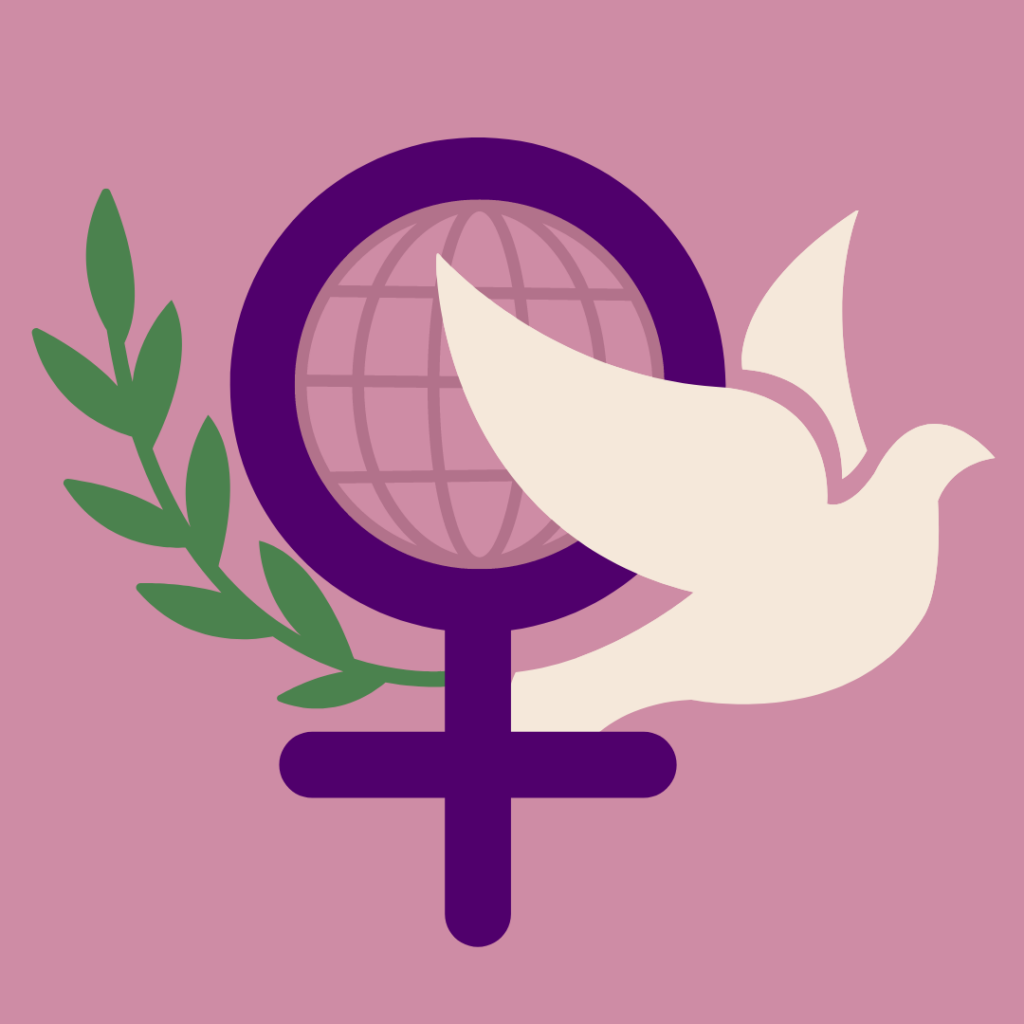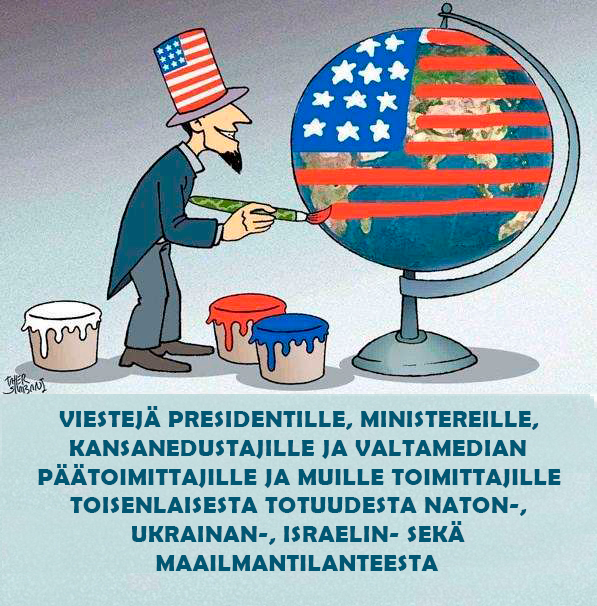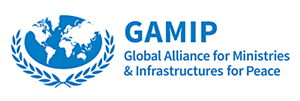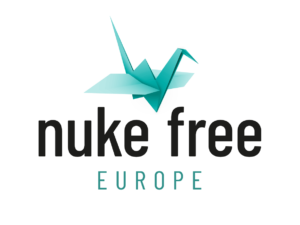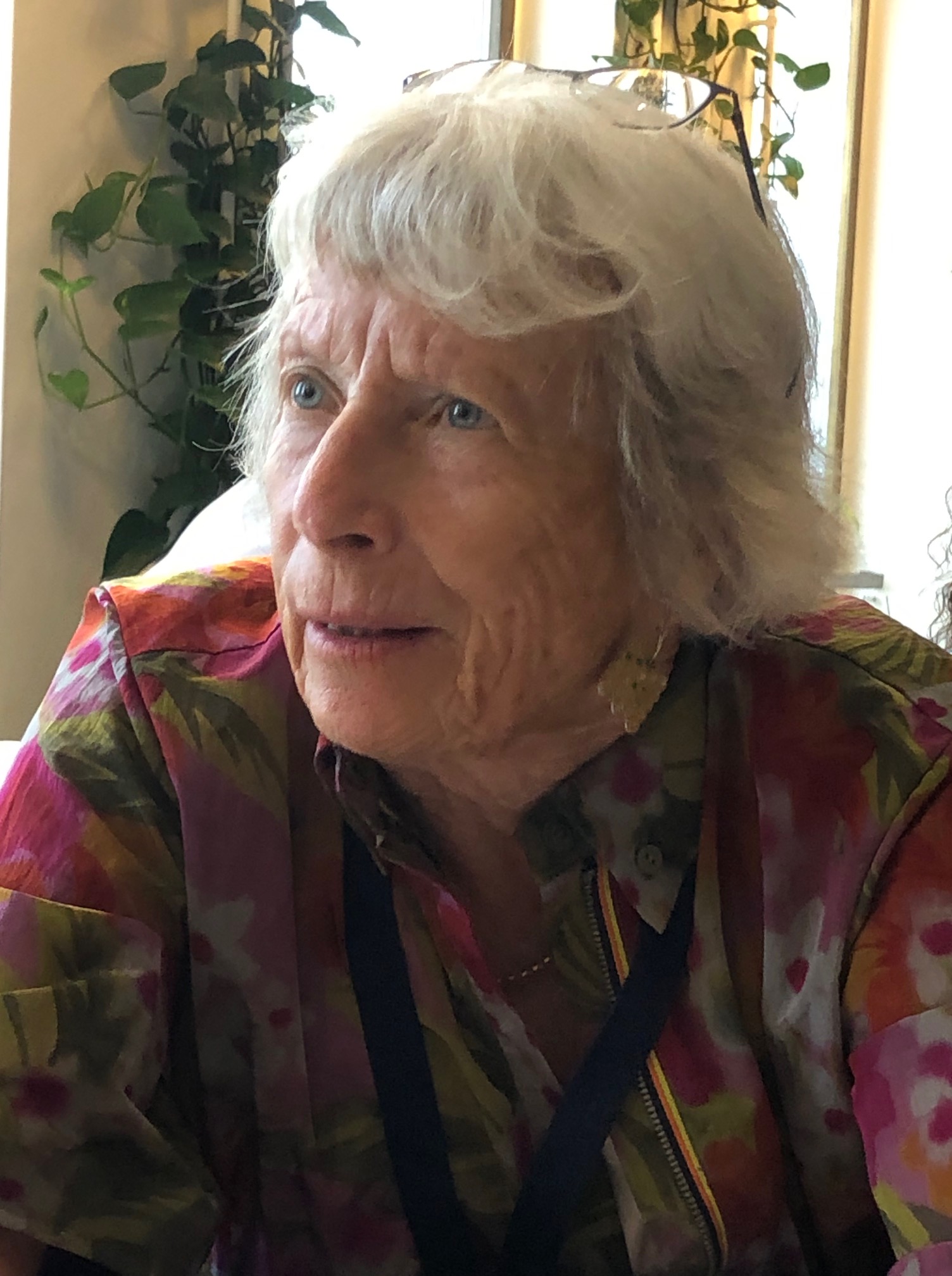
IMPRESSIONS AND EVALUATION OF HELSINKI+50, Heidi Meinzolt/WILPF
IMPRESSIONS AND EVALUATION OF HELSINKI+50, Heidi Meinzolt/WILPF
When the multilateral conference CSCE was founded in Helsinki in 1975, the aim was to promote dialogue between East and West. This came closest to a peace agreement for post-war Europe during the ongoing Cold War era. In 1995, CSCE became OSCE, an organisation that was to contribute to overcoming the historic upheavals taking place in Europe and Central Asia and the new challenges to security, peace and the preservation of human rights. Thus, the Helsinki Final Act created the necessary environment for détente, disarmament and a dynamic peace and human rights movement of global significance. Was Helsinki+50 a cause for a great celebration and/or a warning not to further undermine the moral legitimacy of the OSCE and its principles and to discuss reforms?
Multilateralism and peace
The idea of peace was and remains closely linked to a multilateral order. This was already discussed by the founding mothers of the Women’s International League for Peace and Freedom/WILPF at the end of World War 1. They actively participated in the founding of the League of Nations in order to undermine warmongering nationalism through an international arbitration institution. After the failure of the League of Nations – triggered by the National Socialists – WILPF women helped drafting the Charter of the United Nations after World War 2 and have since continued to work globally on international conventions, disarmament negotiations and giving women a voice across borders for justice and peace. The path from the CSCE to the OSCE as a bridge between East and West, as a space for mediation and dialogue based on the principle of consensus, has always been an important reference point for WILPF’s international peace work and conflict prevention.
The events in Helsinki in 2025 were therefore a welcome opportunity for women peace activists and women’s organisations to defend the steadily shrinking scope for civil society activities – with friends, institutions and politicians who are open to this. Based on their feminist-critical intersectional analysis of conflict and violence, they contributed constructive perspectives for the future in order to highlight the importance of multilateralism to preserve its significance for people and as a basis for peace work.
One focus of the recommendations was to further link the three dimensions of the OSCE conceptually and institutionally in the sense of creating a peace agenda:
- the security dimension should be more clearly be established as a guarantor of comprehensive human security and the prevention of violence and conflict, including sexual violence
- the human rights dimension, should guarantee the recognition of the universality and inviolability of human rights (including women’s rights) for all
- the economic dimension, should be expanded in the spirit of a care economy, and the environmental dimension, should strongly focus on climate justice in conjunction with demilitarisation.
However, all this was only a marginal issue in Helsinki. The proposal to further develop proposals, including through a new OSCE Women’s Conference (as in Berlin in 1990), remained up in the air.
Civil society representatives of the CSP Working Group on Gender from the Caucasus region, the Balkans and Central Asia also warned against losing sight of the numerous protracted and forgotten conflicts and traumas; there is a need for equal dialogue, meaningful participation in the implementation of the WPS agenda, peace education and the defence of open spaces for the promotion of democracy locally on the ground. Opportunities for (non-military) self-defence and peace-building should be actively promoted. Under no circumstances should they be further restricted by new laws.
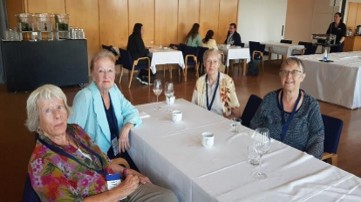
Ulla Klotzer, Lea Launokari, Vera Zalka, Heidi Meinzolt
European representatives particularly condemned the programme of massive rearmament pursued by the EU and European states – not only because of the astronomical profits made by the arms industry. They argued that it leads to the militarisation of all areas of life, especially educational institutions. The existential threat to all life posed by the deterrence programs through the use of nuclear weapons and the expansion of military alliances, especially NATO (see GWUAN statements), took centre stage. There was agreement that the one-sided focus on military security only cemented new and old hatred and enemy stereotypes and steels the money needed for mediation, missions, negotiations, social programmes against exclusion and exploitation, and social cohesion. Civil society applause was largely met with institutional (and media) incomprehension or simply silence.
Is there still a future for Common security?
In feminist discourse, security is always seen as a continuum for overcoming violence. Concern for individual and collective security is a shared, cross-border project that encompasses health and social security, sexual and reproductive rights, education, access to resources, clean environment and politically relevant decisions. There are no national boundaries here. The perspective of shared security is therefore a matter of course for women.
In Helsinki, common security is celebrated everywhere as a great achievement – but the political reality tells a different story. The Helsinki Principles did not last 50 years and, unfortunately, never received the (political and media) attention they deserved. The ceremony in Helsinki somehow managed to dust off the mothballs of commitments and remind us of a common, human, complex understanding of security for all member states – but for the people?
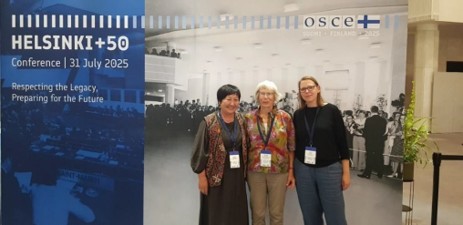
But the many (in) visible walls and fences, the remilitarisation, but above all the one-sided accusations regarding Russia’s obvious violation of the principles – without mentioning other international military dynamics that are shaping the ‘turning point’ – have clearly slowed down the momentum for a renewal of the organisation and the priority of the idea of commonality.
The rather modest visible participation of political decision-makers in the event was also indicative of the sideline to which the idea of common security has been pushed in political practice. The diplomatic quality of the demand and its implementation are currently not in line with ‘realpolitik’. Thus, the OSCE’s opportunities as a bridge, negotiator and mediator disappeared behind the geostrategic conflict of power and influence. No new bridge builders were in sight.
The city of Helsinki then left the welcome reception almost entirely to civil society and a lavish buffet, with the exception of a brief, humorous welcome from the foreign minister about the wonderful
weather (‘just like 50 years ago’). This provided an opportunity for exciting discussions among us activists and think tanks, but had no external impact whatsoever. Not even in Helsinki did citizens and tourists seem to notice the ‘event’.
Opening ceremony and event at the occasion of Helsinki+50 in Helsinki 2025
Was it merely symbolic, or a cultural contribution to the opening of the celebrations in Finlandia Hall in Helsinki that could be easily misunderstood? An all-male choir marched in; it did not really sing, but rather shouted out the Helsinki Principles with almost brutal emotion – more frightening than convincing
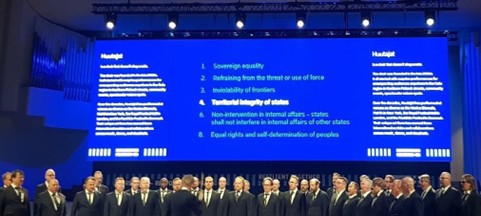
This was followed by praise for the glorious past of the treaties and political milestones on the path from the CSCE to the OSCE, and then by a tirade about how all these valuable principles are currently being violated by Russia. But doesn’t that violation also apply to many governments around the world actually?
The dominant male presence on stage – and in the panels– was perceived by committed feminists as a rather bad joke and as proof, or as an incentive, that feminists still have a lot of work to do and are still far removed in realpolitik from their vision of a more equal, just and peaceful world or society!
In the keynote speeches and panel discussions on the topics of RESPECT, RESPOND and PREPARE, there were, of course, numerous political statements about how Helsinki had brought a new quality to international relations and strengthened multilateralism. Even a critical audience could momentarily gain the impression that among the few leading politicians present there is still a strong belief in these principles, including opportunities for the future.
The officially signalled willingness to uphold the principles and adapt them to new challenges was tailored to the celebratory mood. However, during the event and especially afterwards, it became clear that this value was a thing of the past and had been overshadowed by the dramatic political reality throughout the OSCE region, with its many conflicts and wars, rising nationalism, authoritarian leaders and shrinking civil space, especially for women.
The palpable helplessness on all sides did not give rise to anything ground-breaking for world peace, but instead evoked deterrence (including nuclear threats) and sanctioned undemocratic developments, (new) nationalism and authoritarianism through silence. Indispensable rearmament was invoked as the logic consequence.
Even though some emphasised that the classification ‘west and east of Vienna’ was no longer valid in reference to fake “western “values, there was no willingness to point out new constructive ways of mediation and de-escalation for the multitude of protracted conflicts – no conection to link it with wars around the world. It was the urgent appeal of a single young woman – incidentally, on the only women’s panel – who dared to mention Gaza and the responsibility of Israel and the international community for allowing genocide to take place! She received loud applause from the public, less so from the representatives of the institutions.
A lack of enthusiasm and willingness to reform consequently left the media silent – unfortunately, there was nothing spectacular or ground-breaking to report – no forward-looking visions. The elephant in the room remained Russia’s war of aggression, orchestrated by restrictive migration policies, displacement and isolationism.
Conclusion: Helsinki offered a show that brought ‘nothing really new’. But in all modesty, it was nevertheless a rare opportunity to at least talk publicly about common security and the preservation of the principles of international law. Unfortunately, the (international and mainstream) media failed to once again position these aspects in the public eye – another missed opportunity!
The representatives of civil society who had contributed to the preparation of Helsinki+50 with numerous analyses and recommendations left the event with mixed feelings. Is this enough to maintain a certain optimism, to ‘learn from the past and cherish hopes for the next 50 years,’ as the official documents promise? It is up to us to continue talking about the opportunities and
challenges of multilateralism in order to stop the fatal combination of nationalism, militarism and patriarchy. Otherwise, humanity as a whole will lose.
What would be necessary to give Common Security a chance?
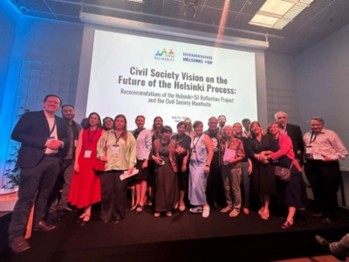
Numerous civil society representatives from across the OSCE area brought their ideas to Helsinki, which they had developed throughout the year in offline and online seminars: confidence- building, joint exchange of ideas and projects led by civil society, active neighbourly dialogue, intersectional early warning and peace-promoting (educational) action to address conflicts in all phases. The exchange among participants on the sidelines of the official celebrations and in parallel events was rich and will, indeed must, be continued – that was the famous cross-border civil society consensus.
There was a side event organised by the CSP (my contribution is attached) and a consultation day with hand-picked representatives of civil society to confirm the Helsinki Principles and concrete reform steps for all three dimensions of the OSCE:
In principle, the consultation day was an interesting format for gathering civil society recommendations in smaller groups, discussing them with institutional representatives and academics, and ultimately feeding them into the OSCE Ambassadors’ Meeting. However, many constructive ideas were boiled down to a few minimal demands for ‘feasible’ reform ideas that were understandable (to whom?). See Annex 2)
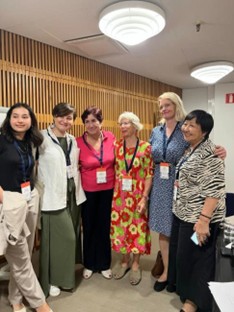
Gender aspects, feminist approaches, both in the definition of equal representation in civil society and the special significance of feminist intersectional conflict analyses and practical experiences of peacebuilding, especially by local women, were left out of the final report.
There is still a small chance that some of the recommendations will be reflected in the civil society final report announced by Anu Juvonen, the Finnish government’s civil society representative.
The complete lack of reaction or questions from the political representatives from the ambassadorial corps in the hall at the end of the presentation did not exactly inspire optimism, to put it mildly, about the institution’s willingness to reform.
Conclusion: Once again, civil society must remain vigilant! We must continue to develop the necessary resilience, combine solidarity and radicalism, and engage in constructive dialogue with one another.
A few aspects of our demands that were discussed:
- We need more cross-border, funded civil society activities to strengthen ‘common security’, combat nationalism, and strengthen local (cross-border) trust-building and resilience.
- Peaceful development and conflict prevention are based on the systematic combination of comprehensive human security, the care economy, and climate justice. This combination needs stronger institutional support for locally and internationally networked activities.
- The verbal separation between east and west of Vienna is no longer viable. There is no such thing as ‘Western’ values – values are universal. Democracy needs support everywhere to solve people’s problems, improve their chances of a modest life in security and prevent social division as a permanent factor of conflict.
- Every opportunity for disarmament initiatives, especially those involving illegal landmines, automatic weapons and nuclear deterrence, must be explored with the help of civil society experts.
- Local women are valuable guarantors of effective early warning in all sectors. of social life. Structures that facilitate access to institutions and ensure transparency for relevant services are indispensable.
- The public visibility of OSCE mechanisms and structures must be increased through the regular and systematic involvement of active civil society in all dimensions, including within the framework of the Troika, parliamentary assemblies, and in conjunction with other bodies such as the Council of Europe.
- A specific OSCE women’s conference, such as the one held in 1990, would be desirable in order to give weight to the demands.
Annex 1) Side Event Contribution Heidi Meinzolt/WILPF
We are here to express our civil society commitment for peace and justice in the spirit of the Helsinki agreement and principles. We are here to raise also our critical voices of problems and deficits and include some recommendations for OSCE to function better. We have well prepared our reflections towards the future of OSCE this year in multiple group discussions, on-and offline seminars, and exchanges with institutions and Think Tanks.
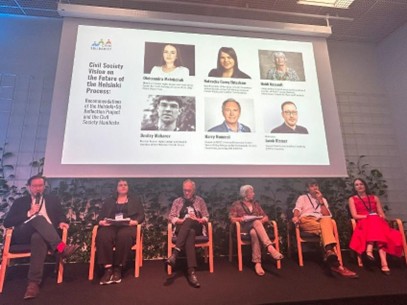
What I would especially like to underline is, that civil society is not (no longer?) a neutral definition for critical dissidents towards existing mainstream and power politics. We used to define our activism as the guarantee of delivering ideas from our rich grass root experiences, we might sometimes even be convinced supporters of decision makers if they understand the real needs of people. But I say this explicitly in times where more and more “artificial”, (partly well payed) civil society is occupying the floor around us, GONGOs take the shrinking space
and new laws restrict our influence on a minimum. These organisations are on the best way to dismantle the principles of “Common Security” (as the founding principle of CSCE/OSCE) for new and dangerous (authoritarian) nationalisms.
I want to emphasize also that women have a specific approach on the basis of their long- term gendered and feminist conflict analysis and understanding of all forms of violence in the triangle of militarism, patriarchy and capitalism. We women reclaim having broad experiences on the ground on how societies can and should function more peacefully.
If I would ask you all, coming from conflict zones or wherever you live in this crazy world,
“what makes you feel safe?”, your answers would certainly be very complex and divers, but I am sure that you all agree on the urgency of stopping war as the ultimate violence that makes us suffer, feel terrible insecurity and helplessness. War is steeling our future! War is destroying what we love, what we need: basic social security, a financial situation that allows a decent living for all and be an active member of our societies, and an environment that grows what we need for our health. War steels our rights and freedoms and, the more authoritarian societies and their leaders get, the more we have to pay with our rights and freedoms. Women are paying a higher price – as (grand) mothers and activists. We can only lose in war.
But as we are not just victims, we are here to request solidarity: We strengthen, on all levels, local and international connections, education, cross-border dialogue, diplomacy and negotiations. We talk less on victory or defeat, on enemies, less on geo-strategy and (military) power.
So how do we see the emergency:
- We raise our voices against the horrible militarisation – for the profit of just a few! and for the pain of the majority of the people. All our lives are militarised, our thinking poisoned in enemy categories and fake solution with weapons which cannot protect us as humans. We request disarmament now, no to strengthening military alliances, such as NATO – I deeply admire the activities of the Global Women against NATO and their commitment.
- We formulate preventive agendas, locally, cross-border to (re-)build trust and confidence on all levels. Hate doesn’t have a space anymore – but peace-education (in schools, universities, clubs, wherever we live and work) and peace-building as essential part of the WPS agenda.
- We request a say in early warning structures in all conflict phases – on the basis of our connections on the ground, as care givers. Climate justice is an essential part of our awareness raising. We are not sitting in ivory towers but share concrete ideas.
- We advocate for peace-building as a primary educational tool. We know that preparing for peace is a long way to go, it is much more than a cease-fire or even a peace treaty – to which we of course need to contribute meaningfully and equally. Peace-building is the soft power that decision maker need and must support. As feminists, we know about the diversity of self-defence mechanisms and anti-violence prevention: Self-defence includes the respect for others, of refugees, vulnerable people, diaspora in despair.
- In our recommendations we have compiled the need for stronger, also institutionally supported cross-dimensional approaches. We plead for women’s/feminist spaces that OSCE could support by the revival of a women’s conference as it happened in 1990 in Berlin. Inspiration and good will is needed to let this organisation survive. and the founding idea of common security recognized.
Annex 2)


